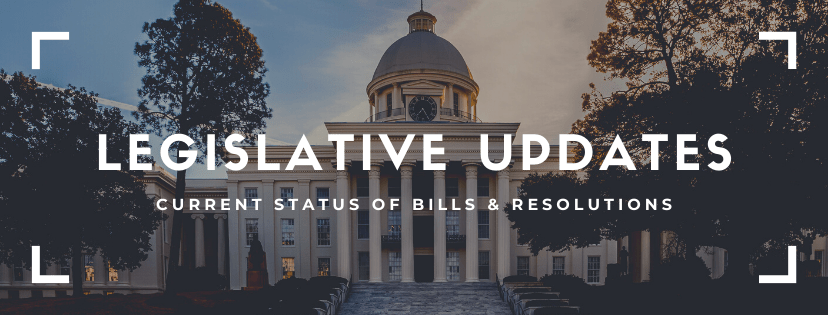Category: Advocacy
-
Discussions with Decision Makers: Senator Robert Stewart
Senator Robert Stewart, a native of Selma, is the newly elected Senator of District 23 and received a bachelor’s degree in Accounting from Tuskegee University and a Masters in Accounting from Kennesaw State University. Stewart is a former aide to U.S. Rep Terri Sewell, and he worked in an advocacy role at Public Citizen Inc.,…
-

Investing in Rural Medicine for the Future
Investing in Rural Health Care in Alabama remained a top priority for the Medical Association this past Legislative Session and will be going forward. Ensuring affordable, high quality and physician-led access to quality care for rural residents not only means a healthier Alabama, but is also a piece of the economic development puzzle for maintaining…
-

Discussions with Decision Makers: Representative Jeff Sorrells
Representative Sorrells is a member of the Alabama House of Representatives from the 87th District, serving since 2018. He is a member of the Republican party and serves on the House Health Committee. Rep. Sorrells was previously the mayor of Hartford, Alabama and is a vice president of the First National Bank of Hartford, Alabama. What first…
-

Drawing a Line at Pharmacists Prescribing Medicine
For the 5th installment of an in-depth look into each of the Medical Association’s “Top 10 Highlights” from the 2022 regular session, we will look at the Association’s opposition to allowing pharmacists blanket authority to prescribe vaccines and immunizations At the beginning of the 2022 Regular Session, a bill was drafted and supported by the…
-

Discussions with Decision Makers: Representative Arnold Mooney
Rep. Mooney (R–Birmingham) is a member of the Alabama House of Representatives, serving the 43rd district covering Shelby County. Born and raised in Montgomery, Rep. Mooney is supported by ALAPAC and a member of the House Health Committee. Rep. Mooney has been married to his wife Kelly for 31 years; has three grown children, a…
-

Discussion with Decisionmakers: Gil Isbell
Rep. Isbell (R–Gadsden) is a member of the Alabama House of Representatives, serving the 28th district covering Etowah County. Born and raised in Etowah County, Rep. Isbell is supported by ALAPAC and is running for re-election to represent District 28. He works at Isbell Dental and served as President of Gadsden Kiwanis Club. What first…
-

Breaking Down the New Telehealth Law
Questions and answers to the new Telehealth Law that was sponsored by Sen. Dan Roberts and carried by Rep. Paul Lee in the House – ACT 2022 – 302. What is its purpose? The stated legislative intent of the law is to expand access to healthcare through the use of electronic devices and technology. It…
-

Medical Association’s Top 10 Highlights for the 2022 Regular Session
While the Medical Association advocated on and monitored hundreds of bills and resolutions during the 2022 Legislative Session, below is a “Top 10” list of some of the major issues on which the Association was involved.
-
Discussion with House Candidate Dr. David Cole
Dr. David Cole – a member of the Medical Association and a candidate supported by the Alabama Medical PAC (ALAPAC) – is running for Alabama House District 10 in the Huntsville/Madison area. HD 10 is an open seat as the incumbent is retiring. He is running unopposed in the republican primary and will face a…
-

2022 Legislative Session
Scope of Practice Expansion Scope Expansion of Podiatry: This bill (SB 101) would expand the scope of the practice of podiatry to include treatment of disorders of the foot and ankle. This bill has passed Senate Healthcare Committee and is awaiting a vote in the Senate. Scope Expansion of Optometry: This bill (SB120) would provide…